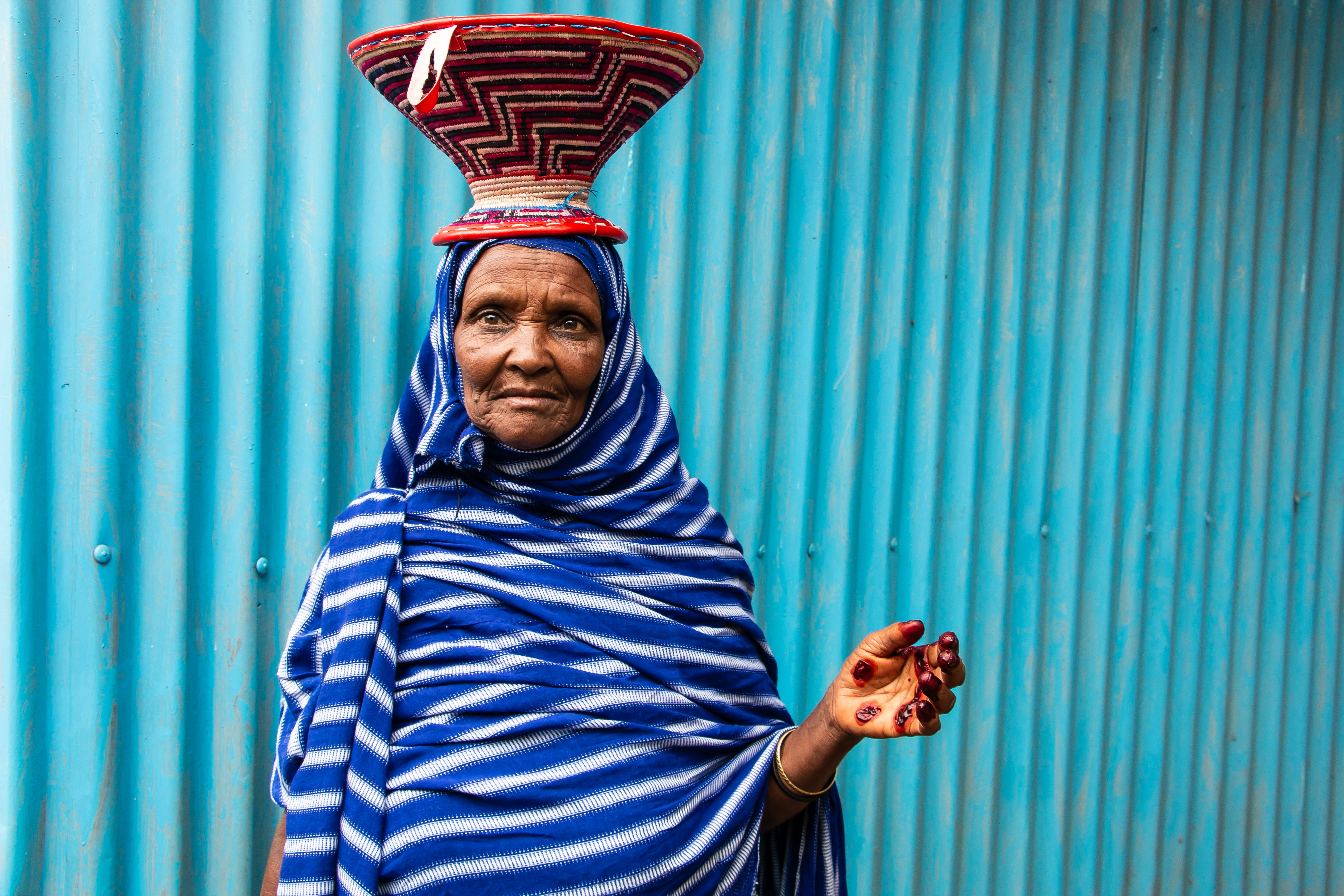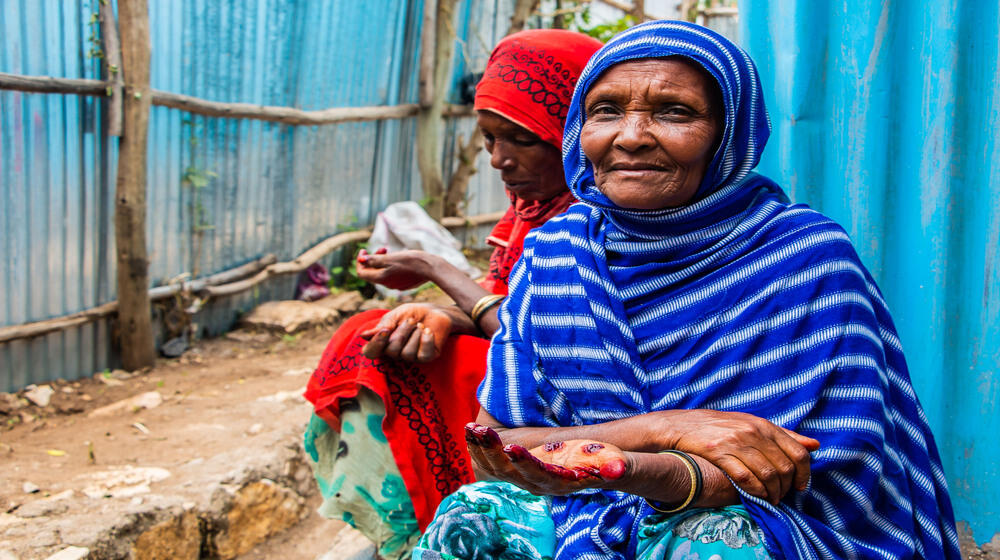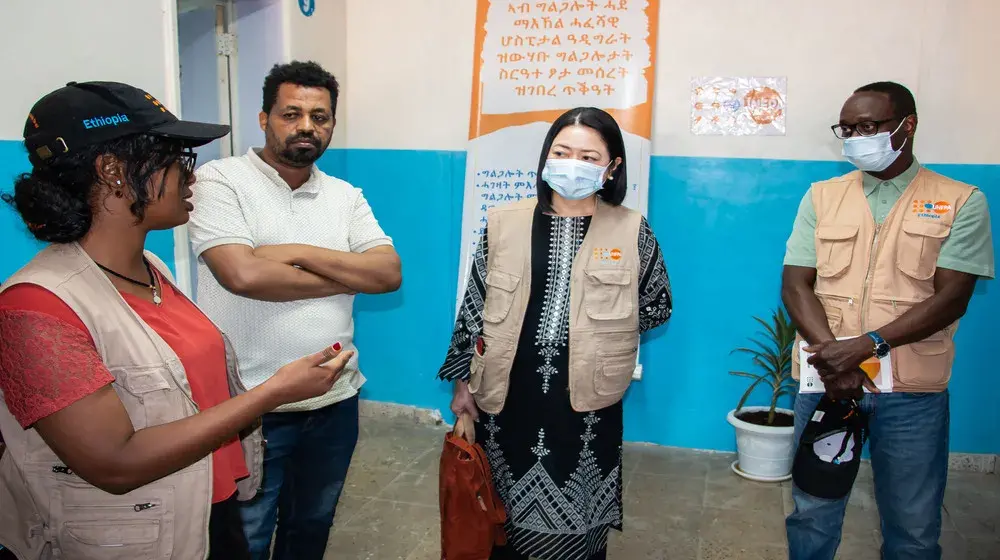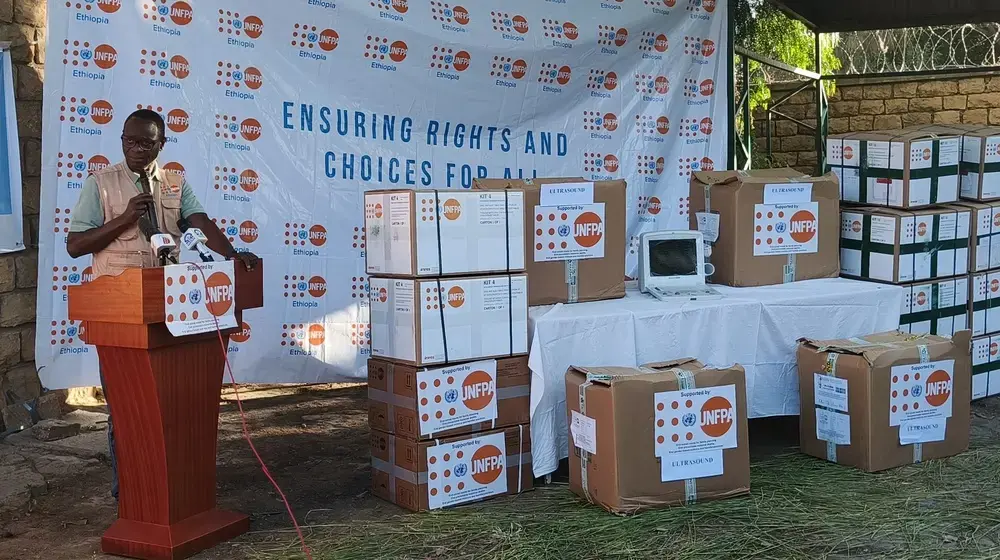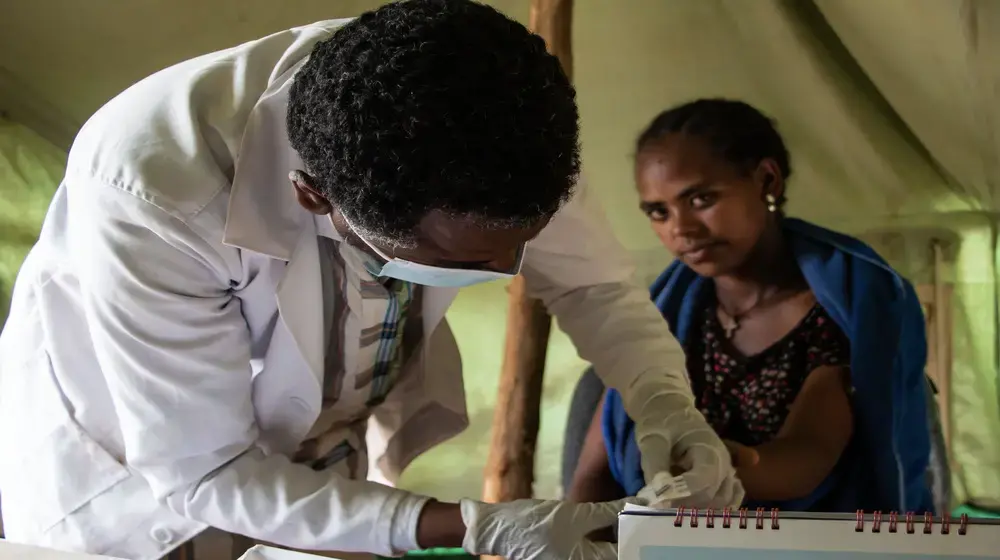CHINAKSEN, Oromia - “Everytime I come to the Safe Space and see my basket there, hanging on the wall, I feel proud of myself. It brings some comfort to my life”, says Ugosa Hassan. The Women and Girls’ Safe Space which she comes to every day is run by the International Medical Corps with the support of UNFPA.
Ugosa, a 60-year-old mother of five, is one among the thousands of families displaced by the inter-communal conflict along the border areas between the Somali and Oromia regions over water and grazing land. Tensions have intensified due to the effects of drought since October 2022.
In Oromia region, regional and zonal authorities have appealed for humanitarian assistance for 3.4 million people affected by the drought. In East and West Hararghe Zones, 24 woredas are severely drought-affected with an estimated 1.3 million people in need of humanitarian assistance.
“I used to be a wealthy woman. I had farmland, horses, cows, and even a shopping center. The conflict has ravaged my life. Now, I am destitute”, recounts Ugosa who is living in a makeshift site in the outskirts of Chinaksen.
Localized inter-communal violence, compounded by the effects of one of the worst droughts in decades, continues to cause loss of life and livelihoods, driving more internal displacement and increasing the humanitarian needs in Ethiopia’s southern and western regions, including Oromia.
“Life is not easy,” says Ugosa “but with the support of the social workers and other women I met here I have found some solace.”
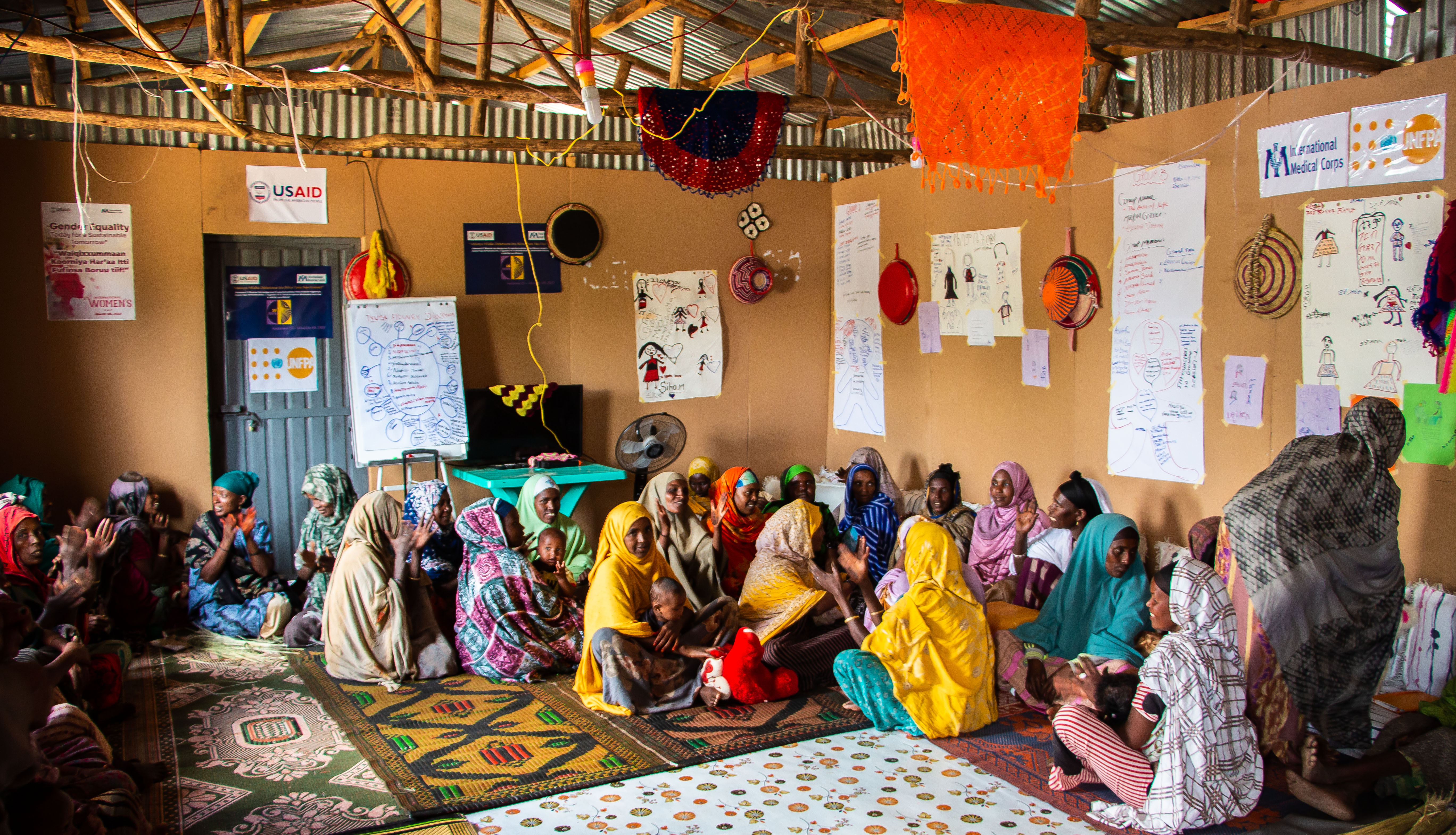
An entry point to access GBV services and build peer-to-peer networks
Women and Girls’ Friendly Spaces offer a physical and emotional space for women to go and feel safer, access information and support, participate in activities, build their networks and strengthen relationships with peers.
“In Chinaksen, women do not have any other space to gather together, socialize, discuss issues relevant to them or even forget about their distress in life. Here, displaced and host community women can support and learn from each other,” says Maryam Mukhatar, a cultural mother supporting the integration of displaced women in the community.
With no other means left to help them survive, women like Ugosa fear for her family’s future. Women and girls affected by conflict and drought are at a heightened risk of sexual and physical violence and coercion. Child and forced marriage spike during crises as protection mechanisms fail and households use it as a coping mechanism.
“The Women and Girls’ Friendly Space is helping to counteract child marriage. Girls feel free to speak and report cases and find help, including during the awareness sessions created for the community and adolescents,” says Amina Ali, GBV Manager at International Medical Corps running the Safe Space supported by UNFPA.
WGFS are co-created with women and adolescent girls entangled in conflict, disasters and displacement, supporting their access to services and reducing their vulnerability to harm as well as enhancing their empowerment and participation in humanitarian settings.
Ensuring no woman and girl is left behind
With the support of the Central Emergency Response Fund (CERF), UNFPA works with the International Medical Corps to provide GBV risk mitigation and response services to better protect women and girls affected by conflict and drought in the Oromia region. The response includes maintaining Women and Girls Friendly Spaces where women access integrated GBV and SRH services and skill building activities. Distribution of dignity kits is also undertaken and community outreach and information sessions organized to promote the use of services. Health and protection service providers have also been capacitated at ground level.
Across Ethiopia, UNFPA is supporting 28 Women and Girls’ Friendly Spaces in IDP camps and 21 One-Stop Centers. Critical reproductive health supplies, medicines, and equipment have also been provided and frontline service providers capacitated. To date, nearly 100,00 conflict-affected individuals have been reached with mental health and psychosocial counseling as part of a comprehensive GBV response.
Despite all efforts to increase the coverage of gender-based violence services, much support is needed to respond to the needs of women and girls affected by conflict and climate-related shocks in the region.
The UNFPA Humanitarian Response Appeal 2022 is calling for nearly USD 30 million to respond to the urgent protection and health needs of women and girls in eight crisis-affected regions in Ethiopia including women like Ugosa. To date, nearly 25% of the appeal remains unfunded.
